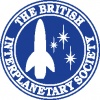Assessing the Computational Potential of the Eschaton - Testing the Selfish Biocosm Hypothesis
From The Space Library
Author - J.N. Gardner
Co-Author(s) -
JBIS Volume # - 55
Page # - 285-288
Year - 2002
Keywords - Anthropic, biocosm, computation, cosmology, ekpyrotic
JBIS Reference Code # - 2002.55.285
Number of Pages - 4
[edit] Abstract
The Selfish Biocosm (SB) hypothesis asserts that the anthropic qualities which our universe exhibits can be explained as incidental consequences of a cosmic replication cycle in which a cosmologically extended bio- sphere supplies two of the essential elements of self-replication identified by von Neumann. It was previously suggested that the hypothesis implies (1) that the emergence of life and intelligence are key epigenetic thresholds in the cosmic replication cycle, strongly favored by the physical laws and constants which prevail in our particular universe and (2) that a falsifiable implication of the hypothesis is that the emergence of increas- ingly intelligent life is a robust phenomenon, strongly favored by the natural processes of evolution which result from the interplay of those laws and constants. Here I propose a further falsifiable implication of the SB hypothesis: that there exists a plausible final state of the cosmos which exhibits maximal computational potential. This predicted final state--the Omega Point or eschaton--appears to be not inconsistent with Lloyd's description of the ultimate computational device: a computer as powerful as the laws of physics will allow.
To BUY this paper click here
JBIS is © 1934-2013 British Interplanetary Society - 
